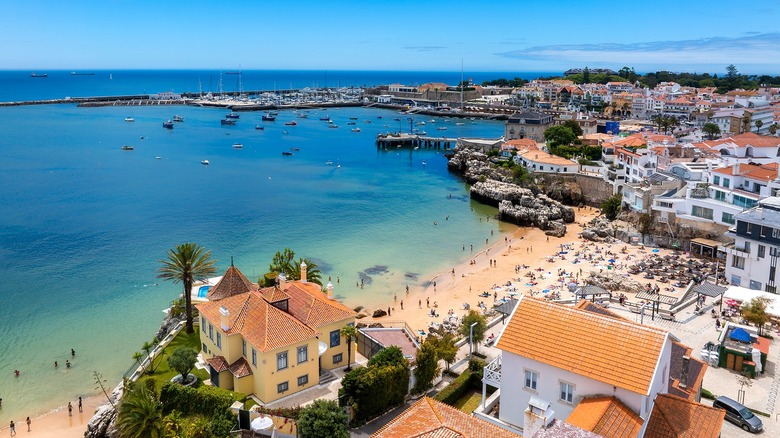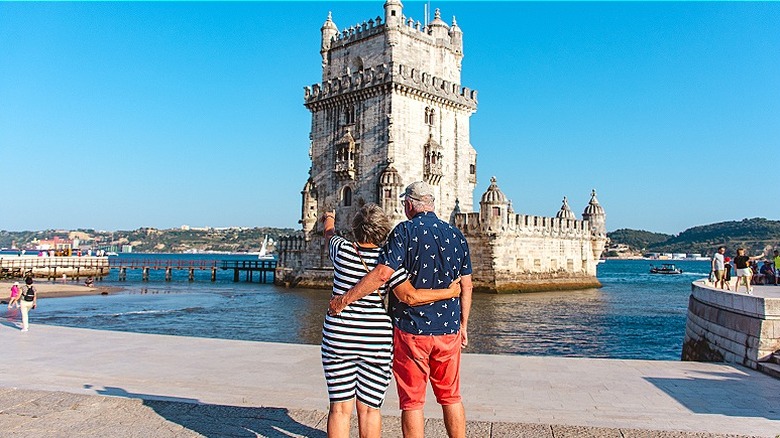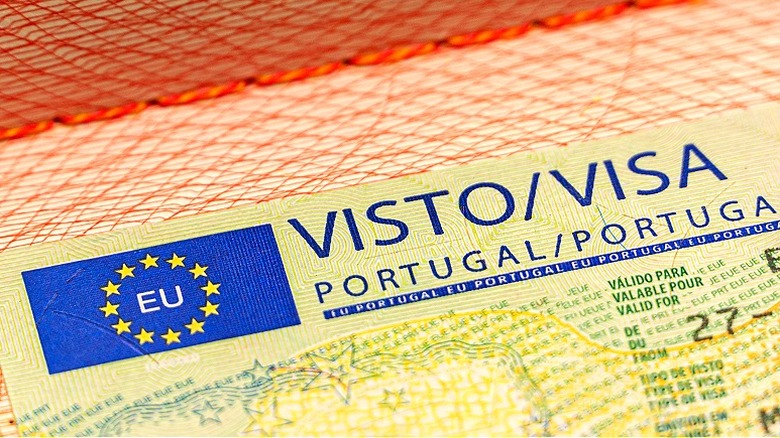This Cultured European Country Is A Great Place To Retire (And Cheap Too)
Deciding where to retire can be a challenging decision. From weather to activities to costs, would-be retirees can have a lot of decisions to make when it comes to how to spend their golden years. While more traditional U.S. retirement destinations (i.e., Florida) can be appealing, an increasing number of Americans are broadening their retirement location search and choosing to retire overseas. In fact, according to the Social Security Administration, there are more than 760,000 Social Security beneficiaries living abroad every year. It's worth mentioning that there were less than 400,000 beneficiaries doing the same in the year 2000.
Walkability, health care, and cheaper costs of living are all significant draws for retirees who are considering moving to a foreign country. Similarly, finding a more stable political atmosphere can be important to retirees, especially in the wake of increasing polarization in the U.S. However, for those who might have already had a hard time deciding between the 50 states (we shared the five best and five worst states to retire in), opening up a larger world map can make deciding where to move even more difficult.
With that in mind, certain considerations generally remain constant for retirees, such as access to quality health care and options to keep active. While it might feel overwhelming to try and decide on the best place for your retirement, some countries definitely stand out from the rest. In fact, according to International Living's Annual Global Retirement Index, Portugal is one of the best foreign countries for retirees.
The perks of Portugal
While there are a lot of countries worth considering when retiring, Portugal has some specific offerings. In addition to beautiful cities and nice weather, the country offers retirees a wide range of perks. For starters, the visa process to move to Portugal is easier than many other European countries. Similarly, unlike other European countries that might require a non-English driver's test, Portugal allows you to simply trade your U.S. driver's license for a Portuguese one. Further, the country consistently ranks as among the safest in Europe, and many residents speak English, which can make the transition smoother for retirees.
Another important consideration is that, despite Portugal's rather small size, the country offers a variety of bustling cities, coastal villages, or even more rural options depending on the lifestyle you prefer in retirement. Plus, Portugal has welcomed over 800,000 foreigners (with about 7,000 being from the U.S.); this not only creates a community of expats from around the world, but proves the country is welcoming of non-locals.
However, perhaps one of the best perks of moving to Portugal is actually the country's health care system. Julien Faliu, founder and CEO of Expat.com, told Travel + Leisure, "Portuguese health care is one of the best in Europe." According to International Living, a retired couple in their 60s can expect to pay about €300 (or, roughly $325 as of November 2024) a month for a higher end health insurance policy. Plus, according to the World Health Organization's 2019 World Health Report, Portugal ranked 12th in world health care systems.
Things to keep in mind
It's important to realize that, as an expat, chances are good you'll end up with private health insurance (since it's technically a requirement of the resident visa). With that in mind, the private health care system in Portugal is much lower-cost than the U.S. health care system. It's also important to realize, though, that while Portugal can offer a cheaper cost of living, living comfortably will still require a solid income. Expats can generally retire comfortably with about $3,000 worth of income per month, depending on lifestyle choices and whether they decide to rent or own.
It's also important to do your research on visa options in Portugal. There are two specific visas that would-be retirees should consider, the D7 and D9. The D7 visa, which is also referred to as the retirement visa, requires would-be expats to have steady passive income of at least €9,120 (~$9775) every year (this can be anything from rental property income to pensions to interest on investments). Keep in mind that your required passive income amount does go up if your visa also includes a spouse and/or child under the age of 18. The D9 is also known as the golden visa and it requires an investment of at least €500,000 ($535,925) into a Golden Visa investment fund. Julien Faliu explained (via Travel + Leisure), "For expats who can afford it, the golden visa is also interesting because it covers family members, allowing them to access education and jobs in Portugal and in all of Europe."


